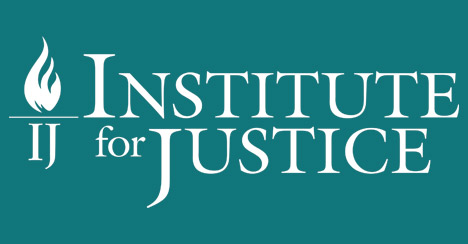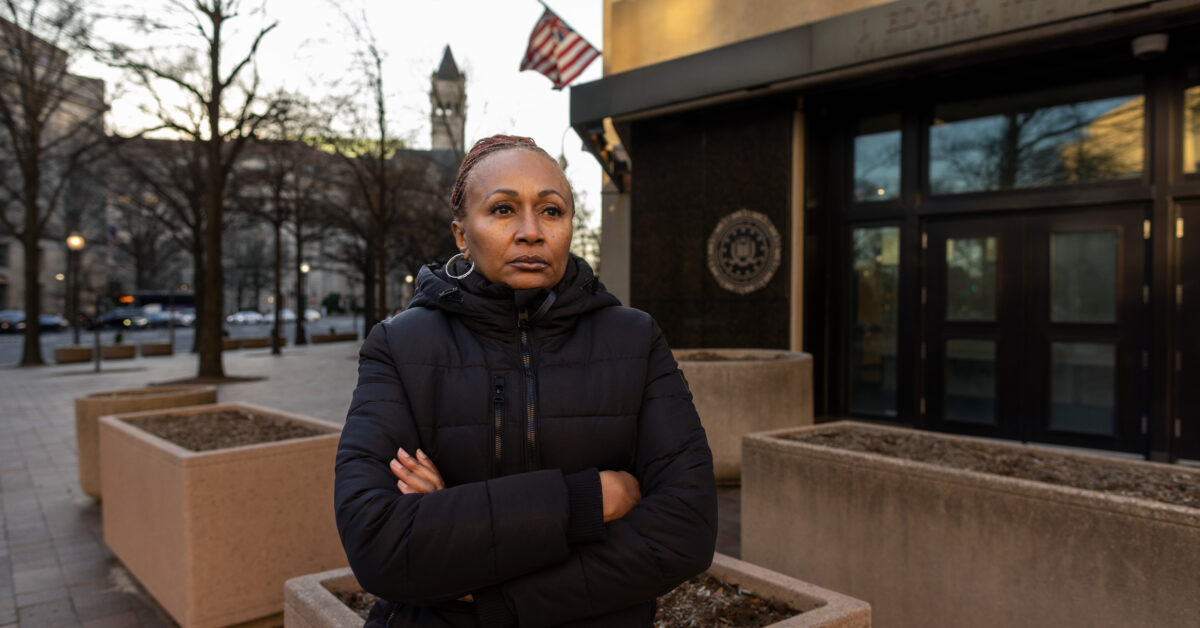You are using an out of date browser. It may not display this or other websites correctly.
You should upgrade or use an alternative browser.
You should upgrade or use an alternative browser.
Civil Asset Forfeiture
- Thread starter pmbug
- Start date
Welcome to the Precious Metals Bug Forums
Welcome to the PMBug forums - a watering hole for folks interested in gold, silver, precious metals, sound money, investing, market and economic news, central bank monetary policies, politics and more.
Why not register an account and join the discussions? When you register an account and log in, you may enjoy additional benefits including no Google ads, market data/charts, access to trade/barter with the community and much more. Registering an account is free - you have nothing to lose!
11C1P
Yellow Jacket
Seems like as soon as we get 2 steps forward, we get shoved back 3 more.
11C1P
Yellow Jacket
More backwards movement.
11C1P
Yellow Jacket
- Messages
- 37,001
- Reaction score
- 6,364
- Points
- 288
Been following since this happened. Steve L's vids on this are always good. Wonder if the peeps will ever get their stuff back or will the gov keep fighting.
What's that saying........don't keep all your eggs in one basket.
11C1P
Yellow Jacket
Been following since this happened. Steve L's vids on this are always good. Wonder if the peeps will ever get their stuff back or will the gov keep fighting.
What's that saying........don't keep all your eggs in one basket.
The govt. has deep pockets (thanks to our tax dollars) & will always fight to the last. Then if they lose, they'll just figure another way whether lawful, semi-lawful or completely unlawful, to get what they want.
Civil asset forfeture is just the .gov's way of punishing people for not holding "their" money via a third party that reports to them.
I say "theirs", because the gov doesn't see the people the money is taken from as actually owning the physical cash. Ultimately, the .gov sees that as their property that has misbehaved.
I say "theirs", because the gov doesn't see the people the money is taken from as actually owning the physical cash. Ultimately, the .gov sees that as their property that has misbehaved.
- Messages
- 37,001
- Reaction score
- 6,364
- Points
- 288

Trucker gets to keep fighting to get his seized $39,500 back
A small-business truck driver’s $39,500 to buy a truck was seized 19 months ago in Phoenix. Court says he can keep fighting to get it back.
11C1P
Yellow Jacket
- Messages
- 37,001
- Reaction score
- 6,364
- Points
- 288
The Institute for Justice (IJ), a non-profit public interest law firm that protects property rights nationwide, called on New York lawmakers to eliminate civil forfeiture following reports that an Albany County sheriff’s employee was arrested for using funds to pay gambling debts. John Cox, head of the sheriff’s business office, is accused of siphoning more than $68,000 from the department’s federal forfeiture funds account.
“The misuse of forfeiture funds is shockingly common because civil forfeiture is inherently abusive and non-transparent,” said IJ Senior Legislative Counsel Lee McGrath. “In just the past few years, we’ve seen a Pennsylvania deputy steal $200,000 from a safe, a Michigan prosecutor embezzle $600,000 in funds, and widespread problems with forfeiture reports in states like Kansas and Oklahoma.
“Civil forfeiture typically lets law enforcement keep and spend the money it seizes, creating a powerful profit incentive. New York should join states like New Mexico and Maine by passing bills introduced in the Senate and House that would eliminate civil forfeiture and instead properly confiscate ill-gotten gains through a criminal process. Research shows that despite law enforcement claims that civil forfeiture is a crime-fighting tool, eliminating it does not increase crime.”

Arrest of Albany County Sheriff’s Employee Points to Larger Problems with Policing for Profit - Institute for Justice
ARLINGTON, Va.—The Institute for Justice (IJ), a non-profit public interest law firm that protects property rights nationwide, called on New York lawmakers to eliminate civil […]
Fantastic news (from 2021? it's not clear if this is recent or not):

 ij.org
ij.org
PHILADELPHIA—Nearly a decade after a Philadelphia family launched a lawsuit to save their home from the city’s abusive forfeiture program, the case ends with reforms in place to protect property owners, compensation paid out to victims of the city’s forfeiture machine, and a distribution of unclaimed settlement funds to local charities. In the beginning of 2021, the Institute for Justice (IJ) secured final approval of two consent decrees to end a class action lawsuit on behalf of people who had homes, cash and cars wrongfully seized. While one decree established reforms to prevent abuse in the future, the other created a $3 million fund to compensate forfeiture victims.
Nearly 2,400 individuals received awards that averaged $1,476. The Institute for Justice then selected Philadelphia charities that are working in the city’s most affected communities to receive approximately $282,000 in unclaimed funds.
“For years, Philadelphia seized and forfeited millions of dollars from individuals through a cruel and unjust legal process. It took a major federal class action lawsuit to bring the mistreatment to an end,” said IJ Senior Attorney Rob Frommer. “The funds which could not be given back to individuals will be going to help those communities in Philadelphia most harmed by these practices.”
Chris Sourovelis and his family nearly lost their home to Philadelphia’s forfeiture machine. Like many others, they found themselves trapped in a process where prosecutors ran “hearings” out of a courtroom at City Hall and acted as judges to take homes, cash and cars. The proceeds then went into a fund controlled by police and prosecutors, pulling in up to $6 million a year. The Sourovelis family, along with several other Philadelphians, filed their lawsuit in 2014. After defeating an attempt to dismiss the suit and certifying a class of more than 20,000 property owners, the city agreed to dismantle its forfeiture machine and compensate victims.
The federal consent decrees ending the lawsuit set in place reforms that:
- Greatly restrict when Philadelphia police can seize money and other property for forfeiture;
- Improve the notice which owners receive about the forfeiture process and their rights under it;
- Ensure that judges—not prosecutors—control forfeiture proceedings and monitor forfeiture settlements for fairness;
- Prohibit prosecutors from making owners return to court again and again or risk losing their property forever; and
- Create a prompt, meaningful hearing where property owners can demand the immediate return of their property.
“Philadelphia was one of the worst examples of how civil forfeiture turns American justice on its head to enrich police and prosecutors,” said IJ President and Chief Counsel Scott Bullock. “This was an important case that not only shut down the machine law enforcement created to enrich itself, but also secured compensation for victims. Unfortunately, civil forfeiture destroys lives and even a successful lawsuit can never give the victims full justice.”
The Institute for Justice leads the fight against abusive civil forfeiture practices that take property without charging people with a crime. IJ’s review of state and federal forfeiture law, Policing for Profit, gave Pennsylvania a “D-” over its poor protections for property owners in its most recent addition. While the Philadelphia case is coming to a close, IJ is challenging forfeiture through class action lawsuits in Indiana, Nevada, Texas and at our nation’s airports.

Class Action Lawsuit that Stopped Philadelphia’s Forfeiture Machine Ends with Victims Compensated and Unclaimed Funds Donated to Charities - Institute for Justice
PHILADELPHIA—Nearly a decade after a Philadelphia family launched a lawsuit to save their home from the city’s abusive forfeiture program, the case ends with reforms […]
Fantastic news (from 2021? it's not clear if this is recent or not): ...
I consider the Institute for Justice and extremely worthwhile group in my book. They took on a fairly small Illinois city, Granite City to be exact, about one of the City's harass the landlords situation. Landlords these days seem to become fair game for politicians seeking more controll and more fees. The IFG won the case and after that I send in a small annual contribution to their cause. I seems like all their cases are for the small guy and are not devoted tp some sort of anti white agenda many other groups are.

The Institute for Justice
The nation's only libertarian, civil liberties, public interest law firm. IJ litigates in state and federal courts around the country on behalf of our most fundamental rights, including private property, economic liberty, free speech and educational choice.
Last edited by a moderator:
Linda Martin thought she found a safe place to store cash she and her husband Reggie Wilder were setting aside to purchase a home. But now her home savings are in the hands of the FBI and she may never see them again. Today, she teamed up with the Institute for Justice (IJ) to launch a federal class action lawsuit to get her savings back and to end the FBI’s practice of sending unconstitutional forfeiture notices that do not explain why the government is trying to take someone’s property away forever.
“The government shouldn’t get to take your property if it can’t tell you what you did wrong,” said IJ Attorney Bob Belden. “Using civil forfeiture, the government decides for itself whether to take and try to keep property, even when it doesn’t suspect the owners of any crime. Then, the FBI sends copy-and-paste forfeiture notices that fail to tell owners anything about why it is trying to take their property. That’s not only wrong; it’s unconstitutional.”
In March 2021, the FBI raided US Private Vaults with a warrant that explicitly directed agents not to conduct a criminal search or seizure of individual customers’ boxes. They were just supposed to identify owners so they could claim their property. But the FBI instead acted on its months-old plan to search and try to forfeit the contents of any box worth more than $5,000.
That’s all the agency really knew about the customers: that they had property worth forfeiting. It didn’t have any idea if owners had broken any law. But with dollar signs in its eyes, the FBI pressed on, sending out notices to hundreds of customers from whom it wanted to forfeit over $100 million cash, gold, and other valuables. Although those notices indirectly refer to hundreds of federal crimes, they don’t tell anyone what the government thinks they specifically did wrong.
That’s what happened to Linda. When she got the notice saying the FBI intended to take her $40,200, she was left utterly bewildered. Lacking any idea about why the government took her money, Linda unwittingly filed a petition that gave the FBI free rein to decide if it will return any of her money. Nearly two years later, Linda has not been charged with a crime and there is no indication that her savings will be returned.
“The FBI took my savings nearly two years ago but has never told me why,” said Linda. “It’s been a confusing and frustrating process from the day my money was taken. No one should have to go through this.”
The FBI’s forfeiture notices violate the Fifth Amendment, which requires the government to provide specific factual and legal reasons for forfeiture. An earlier IJ lawsuit on behalf of several US Private Vaults customers successfully stopped the FBI’s forfeiture proceedings against those renters, with the judge declaring that the FBI’s notices were “anemic.” Unfortunately, that ruling against the government only applied to the named plaintiffs in that suit, leaving people like Linda still fighting for their property.
The new lawsuit, filed in the U.S. District Court for the District of Columbia, seeks to halt administrative forfeiture proceedings for everyone who has received one of the FBI’s deficient notices.
“Thousands of times every year, people receive paltry notices that merely say the government wants to forfeit their property because it might be wrapped up in one of hundreds of federal crimes,” said IJ Senior Attorney Rob Frommer. “Linda’s plight highlights the ugly truth that federal forfeiture incentivizes agents to seize as much as they can, even absent any reason to think that a crime was committed. The FBI’s ‘policing for profit’ deliberately leaves property owners in the dark in order to keep them from fighting back.”
Forfeiture, both civil and criminal, is a huge money maker for federal law enforcement. In just the five years from 2017 through 2021, Department of Justice agencies forfeited more than $8 billion. The FBI forfeited over $1.19 billion during that same time period. And that money goes into an account that DOJ controls itself, without input from Congress. If the government confuses people into filing a petition in response to its anemic notice, those owners fall into a byzantine administrative process with no independent judge, no hearing and no opportunity for judicial review. The FBI forfeited over $113 million through the administrative process over those five years.

The FBI Hasn’t Said What This Couple Did Wrong, But Is Taking Their Savings Anyway - Institute for Justice
Press Conference When: Wednesday, March 8, 2023 at 11:00 a.m. EST Where: Northwest corner of 10 St. NW and Pennsylvania Ave. NW (across from FBI […]
The FBI just went after the contents of a storage vault and decided to keep as much treasure as they could. Makes you wonder about using gold vaulting services if they are located in the USA...
Will it pass?

 ij.org
ij.org

Bipartisan Bill in Congress Would Dramatically Reform Civil Forfeiture Laws - Institute for Justice
WASHINGTON—Today, Rep. Tim Walberg (R-MI) and Rep. Jamie Raskin (D-MD) reintroduced an enhanced version of the Fifth Amendment Integrity Restoration (FAIR) Act, which would enact […]
11C1P
Yellow Jacket
ij.org does good work. CAF still perverts the property rights foundation of our system of government:

 ij.org
ij.org

Money Finally Returned to Charlotte Trucking Company Owner After 2020 Seizure at Phoenix Airport - Institute for Justice
ARLINGTON, Va.—Following a two-and-a-half-year legal battle, the $39,500 seized from small business owner Jerry Johnson at the Phoenix, Arizona, airport was finally returned to him […]
- Messages
- 37,001
- Reaction score
- 6,364
- Points
- 288
Institute for Justice once again
Linky stuff:
Andrew Wimer · March 20, 2023
ARLINGTON, Va.—Following a two-and-a-half-year legal battle, the $39,500 seized from small business owner Jerry Johnson at the Phoenix, Arizona, airport was finally returned to him this weekend. Jerry was never charged with a crime, but the state attempted to take his savings through civil forfeiture. After a trial court judge ruled Jerry did not even have standing to contest the forfeiture of his money, the Institute for Justice (IJ), a nonprofit public interest law firm, intervened and successfully appealed Jerry’s case.

Money Finally Returned to Charlotte Trucking Company Owner After 2020 Seizure at Phoenix Airport - Institute for Justice
ARLINGTON, Va.—Following a two-and-a-half-year legal battle, the $39,500 seized from small business owner Jerry Johnson at the Phoenix, Arizona, airport was finally returned to him […]
__________________________________________________
Civil Asset Forfeiture Victim Gets His Money Back
Mar 23, 2023Another win for the Institute for Justice. 12:35
- Messages
- 37,001
- Reaction score
- 6,364
- Points
- 288
A Detroit man has filed a federal civil rights lawsuit alleging county prosecutors illegally retaliated against him after he challenged the seizure of his car under asset forfeiture laws.
The lawsuit, filed Thursday on behalf of Robert Reeves by the Institute for Justice, a libertarian-leaning public interest law firm, claims that Wayne County prosecutors twice filed baseless criminal charges against him after he joined a class-action lawsuit in an attempt to get his seized car back, violating his First and 14th Amendment rights.

 reason.com
reason.com
The lawsuit, filed Thursday on behalf of Robert Reeves by the Institute for Justice, a libertarian-leaning public interest law firm, claims that Wayne County prosecutors twice filed baseless criminal charges against him after he joined a class-action lawsuit in an attempt to get his seized car back, violating his First and 14th Amendment rights.

Lawsuit: Prosecutors filed bogus charges against Detroit man in retaliation for challenging seizure of car
The Institute for Justice says Robert Reeves' First Amendment rights were violated when prosecutors filed and refiled baseless felony charges against him.
Today, the Arizona Superior Court for Maricopa County ruled that the forfeiture case against Jerry Johnson’s life savings will be dismissed with prejudice, meaning it cannot be filed again. The court also ruled that Jerry, the owner of a small trucking business who had $39,500 seized by law enforcement at the Phoenix Airport in August 2020, is not only entitled to get his money back, but he is also owed 9% interest for the loss of use of his property and is eligible to be compensated for his attorneys’ fees. ...

Victory: Forfeiture Case Dismissed with Prejudice! - Institute for Justice
ARLINGTON, Va.—Today, the Arizona Superior Court for Maricopa County ruled that the forfeiture case against Jerry Johnson’s life savings will be dismissed with prejudice, meaning […]
9% interest is a nice touch
11C1P
Yellow Jacket
You’ve Got to Spend Money to Take Money: DOJ Announces $6B in Contracts to Ramp Up Forfeiture
The U.S. Department of Justice announced new contracts to help its law enforcement agencies manage asset forfeiture investigations. The awards, to multiple private companies, total $6.24 billion over a five-year period. The government’s request for proposal (RFP) states that the contractors will “increase the capacity” for DOJ’s Asset Forfeiture Management Staff. The amounts awarded slightly exceed the six-billion-dollar “maximum aggregate amount” authorized in the RFP.
From 2000 to 2019, federal agencies generated at least $45.7 billion in forfeiture revenue, with nearly $31 billion deposited into DOJ’s Assets Forfeiture Fund and nearly $15 billion deposited into the Treasury Forfeiture Fund. Expenditures from the two funds are controlled by DOJ and Treasury, respectively, and can be made by law-enforcement agencies without congressional appropriation.
“The sheer size of these contracts demonstrates how forfeiture has become a big business for federal law enforcement,” said Dan Alban, Senior Attorney and Director of IJ’s National Initiative to End Forfeiture Abuse. “And it’s not just DOJ and DHS that have become addicted to forfeiture dollars; there’s now an entire forfeiture-industrial complex dependent on the feds continuing these predatory practices. These are six billion reasons we need civil forfeiture reform now. Congress must act to prevent law enforcement from treating ordinary Americans like ATMs.”
In March, Congress reintroduced an enhanced version of the bipartisan Fifth Amendment Integrity Restoration (FAIR) Act, H.R. 1525, which would enact a sweeping overhaul of federal civil forfeiture laws. The bill would remove the profit incentive that drives so many federal forfeitures, end the federal “equitable sharing” program that is used to circumvent state law protections for property rights, and eliminate the unfair administrative forfeiture process.
The vast majority of federal forfeitures are civil in nature, meaning that the government is not required to charge the owner with a crime, let alone secure a conviction, in order to permanently keep their property. From 2000 to 2019, 84% of DOJ forfeitures were civil forfeitures, while from 2000 to 2016, 98% of Treasury forfeitures were civil forfeitures. The vast majority of those civil forfeitures—93% of DOJ’s and 98% of Treasury’s—were processed administratively, meaning property owners never got their day in court.
While forfeiture is a multibillion-dollar business for law enforcement, most seizures and forfeitures are quite small. From 2015 to 2019, half of all DOJ currency forfeitures were worth less than $12,090. From 2015 to 2016, half of Treasury’s currency forfeitures were worth less than $7,320. Those figures show how ordinary Americans—not drug lords or mafia kingpins—bear the brunt of federal forfeiture abuses.
The Institute for Justice advocates to end forfeiture through litigation, strategic research, and legislation. IJ has class action lawsuits aimed at stopping suspicionless seizures of cash at airports, roadside seizures on highways, and the FBI’s unconstitutional forfeiture notices. IJ’s landmark study looking at state and federal forfeiture, Policing for Profit, is now in its third edition. IJ’s advocacy has led to Maine, Nebraska, and New Mexico ending civil forfeiture and replacing it with criminal forfeiture.

You’ve Got to Spend Money to Take Money: DOJ Announces $6B in Contracts to Ramp Up Forfeiture - Institute for Justice
WASHINGTON—The U.S. Department of Justice announced new contracts to help its law enforcement agencies manage asset forfeiture investigations. The awards, to multiple private companies, total […]
1st paragraph =
It's but one more symptom of what happens when the People allow those into power who hate and hold contempt towards the principles and ideals enshrined in our nations Founding Documents.1st paragraph =
It's also what ya get when the why's and how-fors of how those Documents should work and why they were written in the first place, are no longer taught in public schools for the past few generations.
If only Americans guarded their Rights as well as the Muslims defend their faith at the slightest perception of attack, we would not be in this spot.
For far too long, and primarily due to ignorance, too many have been more than willing to allow their Rights to be whittled away in the name of going along to get along.
- Messages
- 37,001
- Reaction score
- 6,364
- Points
- 288
Five Myths of Civil Forfeiture
Originally found the link here:

 landline.media
landline.media
Originally found the link here:

Avoid seizures of cash by taking prudent measures
Cash and other property are seized daily, and truckers are on the road and at risk more than most people. Here’s how to avoid the hassle.
From the .PDF:
Preach.
...
These myths are as follows:These statements do not describe reality; they obscure it. These five false narratives undergird an unjust status quo that leaves property owners unprotected and defenseless. This report aims to set the record straight. The available data and evidence demonstrate the reality of five very different propositions about civil forfeiture:
- Cash seizures, which become forfeitures, typically consist of hundreds of thousands of dollars;
- When property is seized, the owner has access to the courts to recover it;
- Seizure and forfeiture take place in accord with due process of law;
- Our justice system requires high standards of proof of wrongdoing for seizures and forfeitures to occur; and
- The injustices caused by civil forfeiture can be addressed by requiring a conviction in criminal court as a prerequisite to forfeiture litigation in civil court.
...
- A typical cash seizure and forfeiture ranges from several hundred dollars to several thousand dollars;
- When property is seized, the extraordinarily high rate of default judgments in forfeiture cases demonstrates that, in fact, property owners have little access to the courts;
- As seizure and forfeiture are practiced today, they cannot be squared with the due process of law;
- Seizure and forfeiture regularly occur without any evidence of wrongdoing presented in court; and
- The injustices caused by civil forfeiture are largely unaffected by conviction prerequisites in forfeiture statutes
Preach.
What it comes down to, is that for the most part, reps that people have elected to represent them in government view the Peoples Rights as enshrined in the Constitution, with contempt.
Civil asset forfeiture is just their way (they wrote the laws creating it) of shitting all over the 4th and 5th Amendments.
...and then they shit on it again when they see the abuse, but refuse to fix the situation.
If they actually cared about such things as due process, and making sure the gov never takes anything without exceedingly good reason to do so, and without compensation, they wouldn't even consider treasonous "laws" such as these.
Edited to add:....but everyone be sure to keep supporting the so-called mainstream politicians who write laws like this. Anything else would be radical. Or so we're told anyways.
Civil asset forfeiture is just their way (they wrote the laws creating it) of shitting all over the 4th and 5th Amendments.
...and then they shit on it again when they see the abuse, but refuse to fix the situation.
If they actually cared about such things as due process, and making sure the gov never takes anything without exceedingly good reason to do so, and without compensation, they wouldn't even consider treasonous "laws" such as these.
Edited to add:....but everyone be sure to keep supporting the so-called mainstream politicians who write laws like this. Anything else would be radical. Or so we're told anyways.
Fifteen influential nonprofit organizations from across the ideological spectrum sent a coalition letter calling on House Judiciary Committee Chairman Jim Jordan (R-OH) and Ranking Member Jerrold Nadler (D-NY) to reform the federal civil forfeiture system. Under current law, civil forfeiture allows the federal government to seize—and keep—cash, cars, homes, and other property that law enforcement merely suspects is related to criminal activity. The letter notes that both committee leaders supported H.R. 1525, the Fifth Amendment Integrity Restoration Act (FAIR Act), in the previous Congress.
“Americans across the political spectrum recognize that civil forfeiture turns justice on its head,” said Institute for Justice (IJ) Senior Attorney Dan Alban, who co-directs IJ’s National Initiative to End Forfeiture Abuse. “For decades, innocent property owners have lost their hard-earned cash, cars and even homes because the forfeiture system is stacked against them and incentivizes policing for profit. The FAIR Act will help tilt the playing field back toward due process.”
Law enforcement has a powerful financial incentive to seize and forfeit property since the proceeds flow into accounts controlled by agencies, not Congress. Over the past two decades, more than $45.7 billion was deposited into the forfeiture funds run by the U.S. Department of Justice and the Treasury Department. State and local agencies can profit too. Through “equitable sharing,” police and prosecutors can collaborate with a federal agency, evading any stricter state law protections against civil forfeiture, and collect up to 80 percent of the proceeds. Altogether, at least $68.8 billion was forfeited by state and federal agencies from 2000-2019.
The FAIR Act attacks this improper financial incentive in two important ways. First, it directs all federal forfeiture proceeds to the General Fund of the United States so that Congress can appropriate those monies as it sees fit. Second, the bill ends the “equitable sharing” program.
Critically, the FAIR Act would end administrative forfeiture proceedings, which are how more than 80% of federal forfeitures are completed. This is not a court, but an administrative process in which the same agency that seized the property acts as judge and jury if the property owner challenges the forfeiture. The FAIR Act ensures that property owners have their day in a real court with a neutral judge.
Given the difficulty property owners face when navigating the federal civil forfeiture regime, the bill will guarantee the right to an attorney during federal civil forfeiture proceedings. It also requires the federal government to prove by clear and convincing evidence (as opposed to mere preponderance of the evidence) that the property is related to a crime. Finally, innocent owners of property used by another person to allegedly commit a crime will not have to prove their own innocence to recover their seized property.
Spearheaded by the Institute for Justice, the coalition letter was signed by organizations spanning the political spectrum, including the American Civil Liberties Union, Americans for Prosperity, the Competitive Enterprise Institute, the Drug Policy Alliance, the Due Process Institute, the Goldwater Institute, the Law Enforcement Action Partnership, the Leadership Conference on Civil and Human Rights, the NAACP, the National Association of Criminal Defense Lawyers, the National Federation of Independent Business, the National Motorists Association, the National Taxpayers Union, and the R Street Institute.

Cross-Ideological Coalition Calls on House Judiciary Committee Leadership to Reform Civil Forfeiture - Institute for Justice
WASHINGTON—Fifteen influential nonprofit organizations from across the ideological spectrum sent a coalition letter calling on House Judiciary Committee Chairman Jim Jordan (R-OH) and Ranking Member […]
- Messages
- 37,001
- Reaction score
- 6,364
- Points
- 288
Texas jury rejects trucker’s claim to seized money
MAY 23, 2023A jury has ruled against a truck driver whose money was seized as he was traveling to purchase a second tractor-trailer.
The trial started last Tuesday, May 16. The jury delivered its verdict Monday afternoon. More than $40,000 was seized during a traffic stop on Interstate 10 in eastern Harris County, Texas.
Deputies from the Harris County Sheriff’s Office said Ameal Woods was following a box truck too closely in his rental car on the morning of May 14, 2019, so they stopped him.
More here:

Texas jury rejects trucker’s claim to seized money
A Texas jury rejected a claim to seized cash by a Mississippi man who said he was headed to the Houston area to buy a used tractor-trailer.
walkingnam
Predaceous Stink Bug
Years ago I found the following story that I recall occurred in Pennsylvania.
(from memory)
An individual was arrested and found to have gold coins in his possession. They were booked into evidence. At this point everything is fine. Then the watch captain found out or heard of the evidence taken in to police handling for safe keeping. The captain then writes a personal check for the face value of the gold coins. The detaining was released but found out that his property was converted and his subsequent complaint was rejected and he got basically nothing.
Imagine getting an ounce of gold for $50. What a windfall.................
(from memory)
An individual was arrested and found to have gold coins in his possession. They were booked into evidence. At this point everything is fine. Then the watch captain found out or heard of the evidence taken in to police handling for safe keeping. The captain then writes a personal check for the face value of the gold coins. The detaining was released but found out that his property was converted and his subsequent complaint was rejected and he got basically nothing.
Imagine getting an ounce of gold for $50. What a windfall.................
That's what happens when the People keep voting for traitorous f's to run their nation.Years ago I found the following story that I recall occurred in Pennsylvania.
(from memory)
An individual was arrested and found to have gold coins in his possession. They were booked into evidence. At this point everything is fine. Then the watch captain found out or heard of the evidence taken in to police handling for safe keeping. The captain then writes a personal check for the face value of the gold coins. The detaining was released but found out that his property was converted and his subsequent complaint was rejected and he got basically nothing.
Imagine getting an ounce of gold for $50. What a windfall.................
- Messages
- 37,001
- Reaction score
- 6,364
- Points
- 288

Cross-Ideological Coalition Calls on House Judiciary Committee Leadership to Reform Civil Forfeiture - Institute for Justice
WASHINGTON—Fifteen influential nonprofit organizations from across the ideological spectrum sent a coalition letter calling on House Judiciary Committee Chairman Jim Jordan (R-OH) and Ranking Member […]ij.org

Congress tries again to reform civil asset forfeiture abuses
Just about everybody agrees the practice is legalized theft, but cops and prosecutors oppose change.
walkingnam
Predaceous Stink Bug
tptb like the civil asset forfeiture law just fine the way it is. They can shield their theft in the color of their legality not their abuse.
- Messages
- 37,001
- Reaction score
- 6,364
- Points
- 288
Public Interest Advocates Applaud Nevada Lawmakers for Increasing Transparency in Forfeiture Process, Call for More Reforms
June 2, 2023ARLINGTON, Va.—Today, Nevada Gov. Joe Lombardo signed AB 350, a bill that will increase transparency in the state’s forfeiture process—a process through which police seize and the state keeps property without charging property owners with a crime, let alone convicting them.
The Institute for Justice (IJ), the nation’s leading advocate against civil forfeiture, and other advocates applaud the new law and call for lawmakers to continue to reform the state’s forfeiture laws in future sessions.
Police will now be required to report additional detailed information to the Attorney General for each seizure and forfeiture done under state law, and the Attorney General’s office must publish that information on its website. Among the information that now will be required:
Read the rest:

Public Interest Advocates Applaud Nevada Lawmakers for Increasing Transparency in Forfeiture Process, Call for More Reforms - Institute for Justice
ARLINGTON, Va.—Today, Nevada Gov. Joe Lombardo signed AB 350, a bill that will increase transparency in the state’s forfeiture process—a process through which police seize […]
